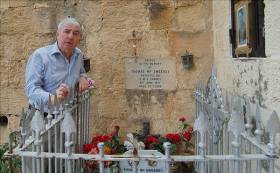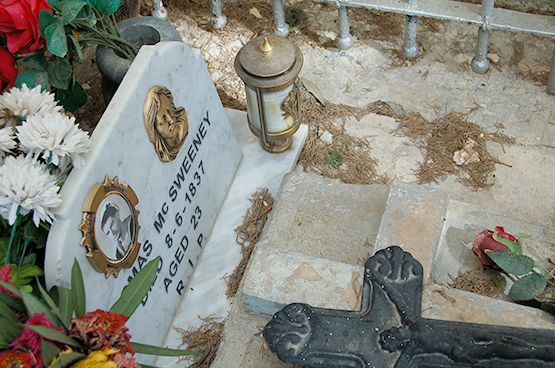Displaying items by tag: Thomas McSweeney
An Eerie Feeling – My Sense Of Hanging From The Yardarm
There are moments in life which are inexplicable.
Such it was when I stood at the gate of a very old graveyard in Vittorosia just outside Valetta in the capital of Malta.
I had never been there before yet something told me where, amidst the many graves, was the one which I was seeking and, without hesitation I walked through the graveyard, straight to it.
I cannot explain how I sensed exactly where the grave of the young sailor I was seeking, was located.
Something told me where he was buried (pictured below).
There was a reason I was looking for his grave.
He was the last man to be hung from the yardarm by the British Royal Navy. A horrible, terrible, brutal punishment.
He was Irish.
He was from Cork, my home county
He was my namesake – Thomas McSweeney.
Incredible?
Definitely.
For some time I had been researching the story of this young man who, at the age of 19, enlisted in the Royal Marine and who was hung from the yardarm of the ship on which he served four years later, condemned in a questionable courtmartial, which had seeds of anti-Irishness, for murder.
It is the subject of this edition of my radio programme. THIS ISLAND NATION, which has personal emotion for me.
When I stood at the grave of that young man, it was an odd feeling to see one’s own name on a headstone and to learn that, 139 years after his execution this month, unidentified Maltese people still honour him by putting lights and fresh flowers on his grave.
Listen to the Podcast of the programme below for an unusual, different story.






























































